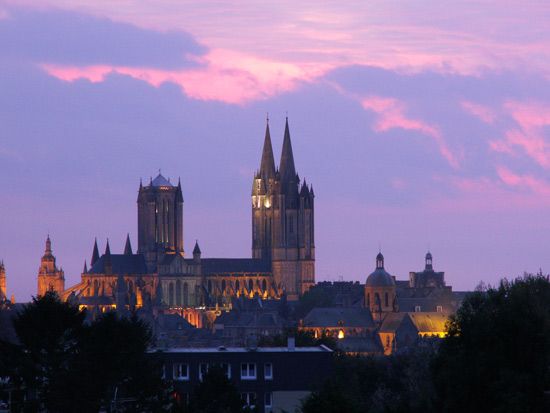Coutances
- Ancient (Latin):
- Cosedia
Coutances, town, Manche département, in the Normandy région of northwestern France, on the Soulle River, near the English Channel. As Cosedia, it was one of the nation’s chief pre-Roman towns, inhabited by the Unelli, an ancient Celtic tribe. Renamed Constantia in the 3rd century to honour the emperor Constantius I Chlorus, it became in the Middle Ages the seat of a viscount, with a long history of sieges. Coutances has been an episcopal see since the 5th century.
The town is dominated by the Cathedral of Notre-Dame, built on the site of a church consecrated about 1090. The present structure is mainly 13th-century Gothic, with slender turrets massed around conspicuous towers. In the interior there are fine rose windows with the stained glass of the 14th century. One of the first towns taken by the Allies after the breakthrough at Saint-Lô (July 1944), Coutances suffered great destruction in World War II, although the cathedral escaped serious damage.
The town is an important service centre for the surrounding rural area where beef and dairy cattle are raised and features a number of related industries (milk and meat). It has an agricultural college. Coutances is the seat of a court of assizes and a subprefect and has tribunals of first instance and of commerce. Pop. (1999) 9,522; (2014 est.) 8,789.











